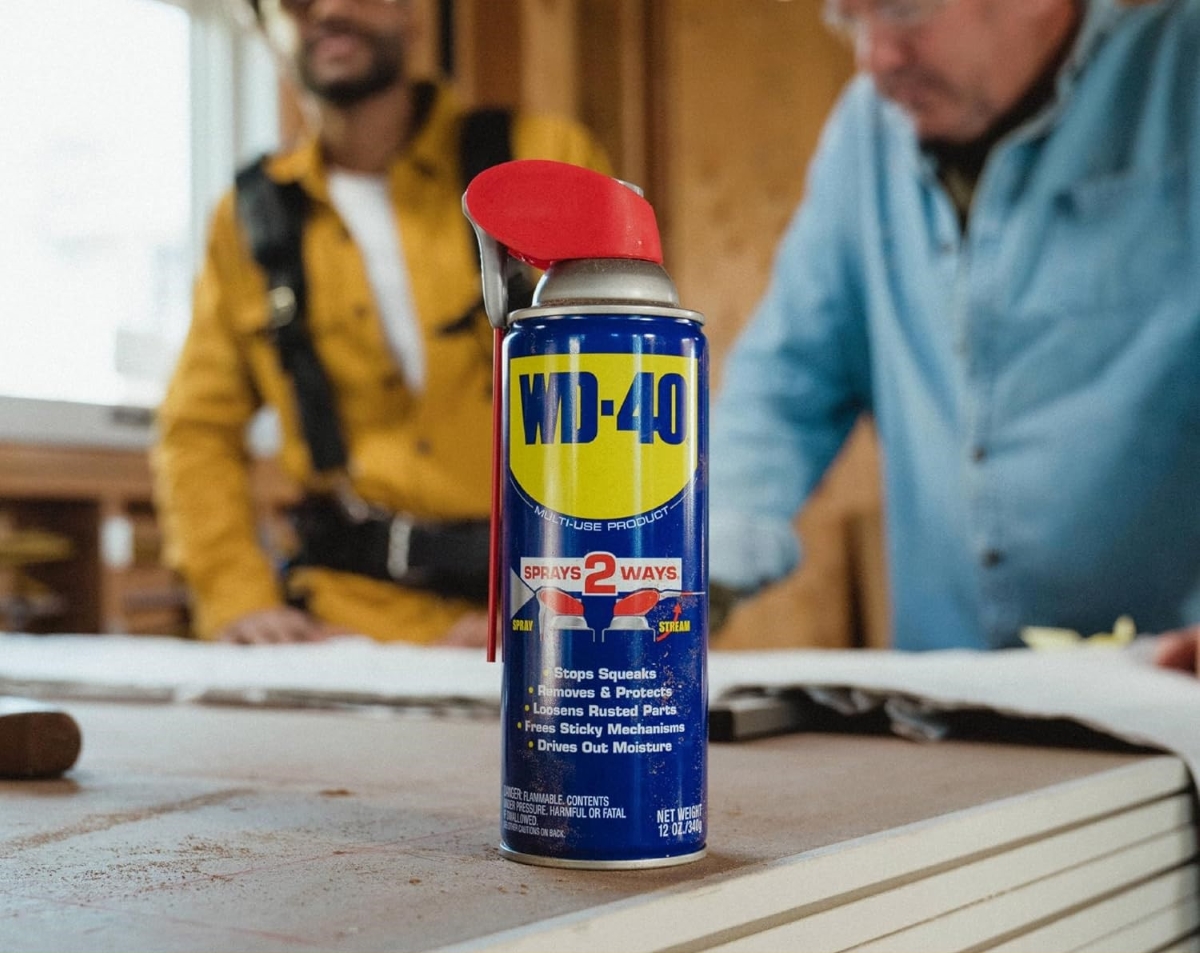We may earn revenue from the products available on this page and participate in affiliate programs. Learn More ›
WD-40 was produced in the 1950s by Rocket Chemical Company, which aimed to create a line of degreasers and rust-prevention solvents to use in the aerospace industry. The familiar blue-and-yellow can debuted on store shelves in San Diego in 1958. Once the company perfected the formula, the public began finding creative ways to put its secret blend of lubricants with anticorrosion, water-displacement, and soil-removal superpowers to good use.
Before testing out these clever uses for WD-40 for yourself, remember to always test it on an inconspicuous area before using it on a larger surface, cautions Shlomo Cherniak, owner of Baltimore-based Cherniak Handyman Services. Then grab the can, and make quick work of your around-the-house to-do list.
1. Remove Marks on Walls
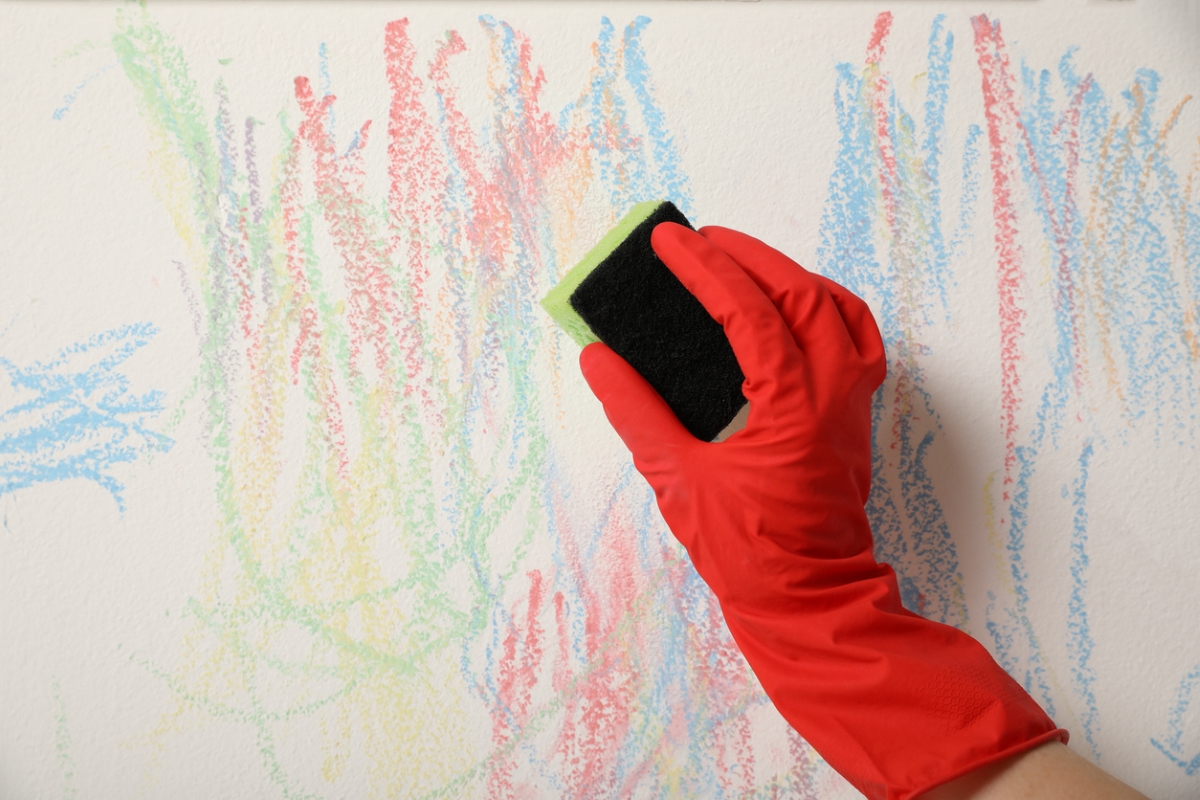
Is there an artist-in-residence at your home? Whether your child has scribbled on a wall or tabletop, WD-40 and a clean, dry rag are a one-two punch against stains. It’s even recommended by Crayola in their stain removal guide and is particularly potent against crayons, clay, glue, tape, and stickers. “Spray WD-40 on crayon marks. Let it sit for a few minutes, then wipe clean with a cloth or sponge,” Cherniak agrees.
RELATED: How to Get Crayon Off Walls: 4 Surefire Methods
2. Polish Household Surfaces
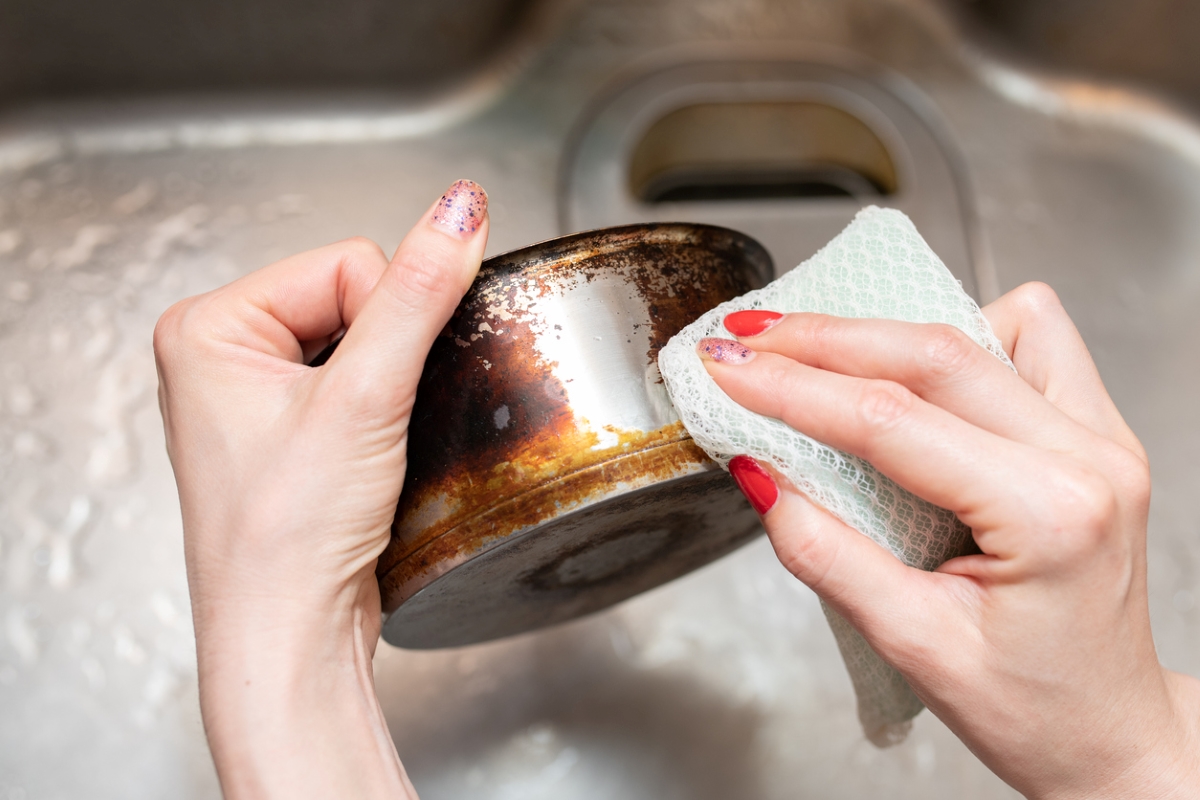
What do DVDs, mother-of-pearl, seashells, restaurant booths, stethoscopes, and artificial flowers have in common? They all can be cleaned and polished with WD-40. This product is a lifesaver when traditional soap-and-water methods fail. Simply spray on and use a clean, dry rag to remove any excess.
3. Prevent Locks and Shovels From Freezing
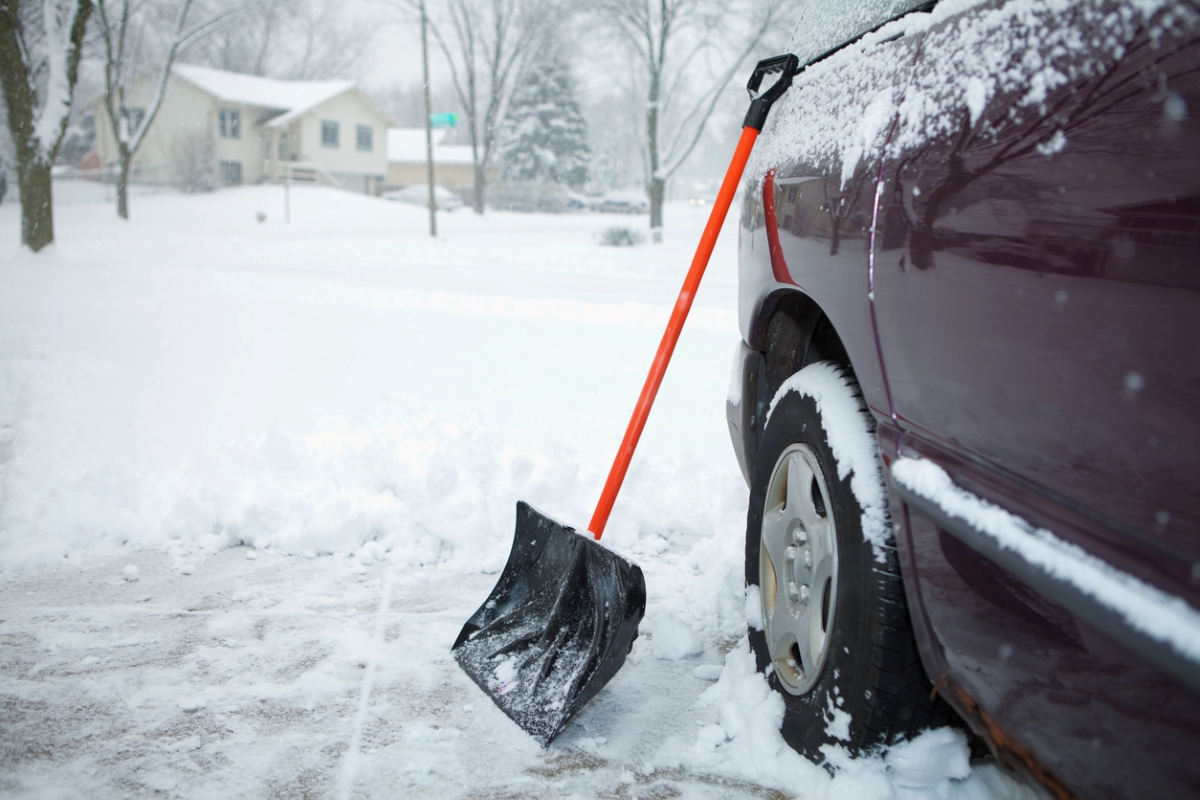
When temperatures dip, spritz your vehicle locks with WD-40 to prevent them from freezing—and while the can is in your hand, give your snow shovel some love, too. “Spray WD-40 on the shovel blade before shoveling snow to prevent snow from sticking to the blade,” advises Cherniak. You’ll clear sidewalks with less effort, because snow won’t cling to the shovel. Spray the handy formula on windows, too, to prevent ice from building up and blocking natural light.
RELATED: We Tested the Best Snow Shovels, and Our Favorite Makes Lifting Heavy Snow Easier on Everyone
4. Defend Against Insects
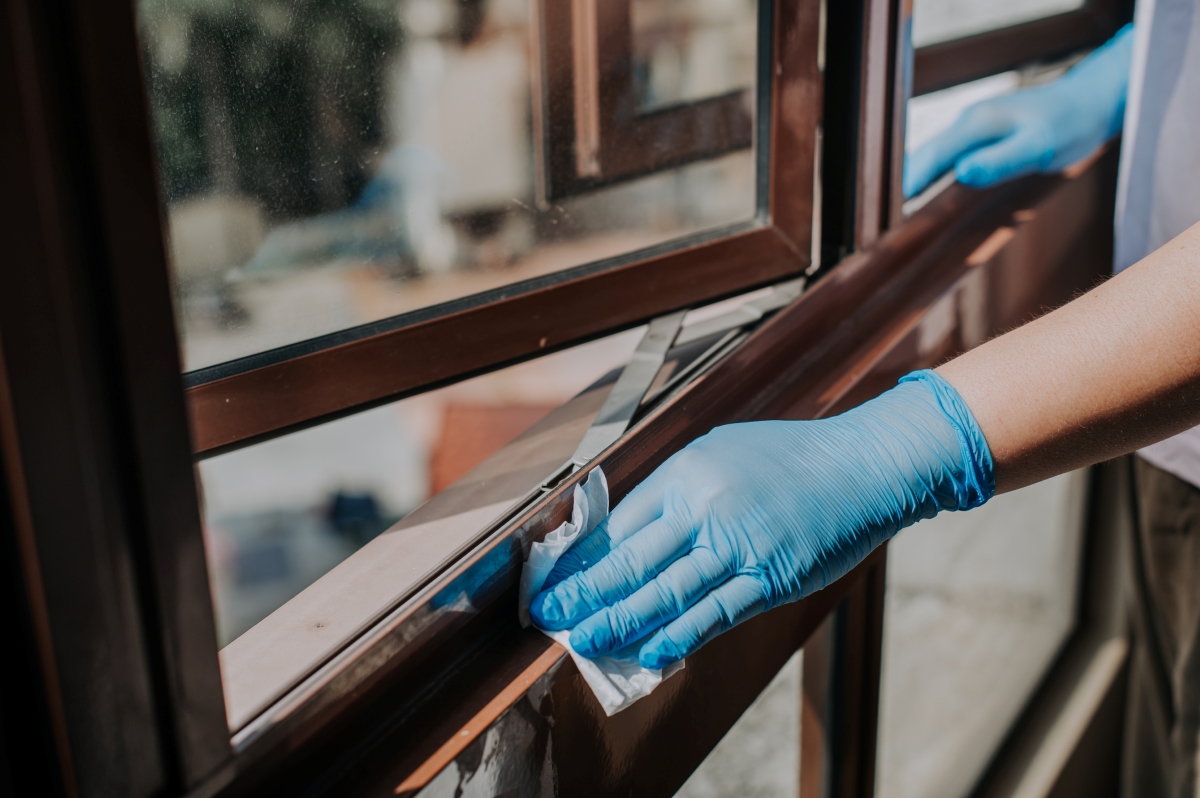
A light coating of WD-40 on doorframes, screens, and windowsills can keep bugs from crawling into your home. Many people even swear by the lubricant’s ability to provide pain relief from bee stings and fire ant and mosquito bites, although those with sensitive skin should steer clear of this treatment.
5. Remove Cosmetics
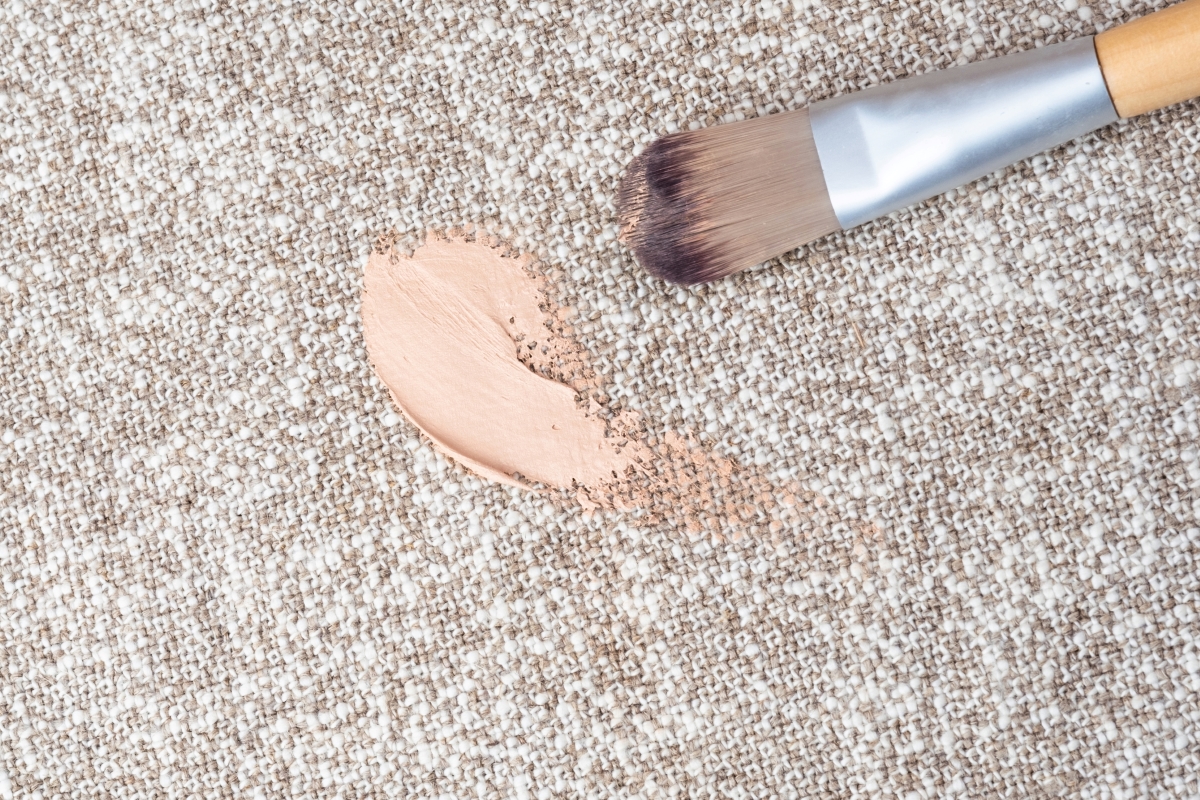
“WD-40” and “cosmetics” aren’t often mentioned in the same sentence, but the spray can treat a range of problems created by the use (and misuse) of beauty products. For starters, it removes stubborn depilatory wax, makeup, and hair dye from carpets and furniture.
6. Create Art Projects

WD-40 isn’t only for cleaning and maintenance: It’s also surprisingly useful when artistic inspiration strikes. WD-40 reacts with marker and paint to create an interesting visual effect. For example, spraying it on a canvas and allowing it to mix in with acrylic paint dry a unique textured base for painting projects.
RELATED: 14 Craft Room Ideas to Inspire Scrapbookers, Knitters, and Other Creative Types
7. Break in (or Revive) Leather
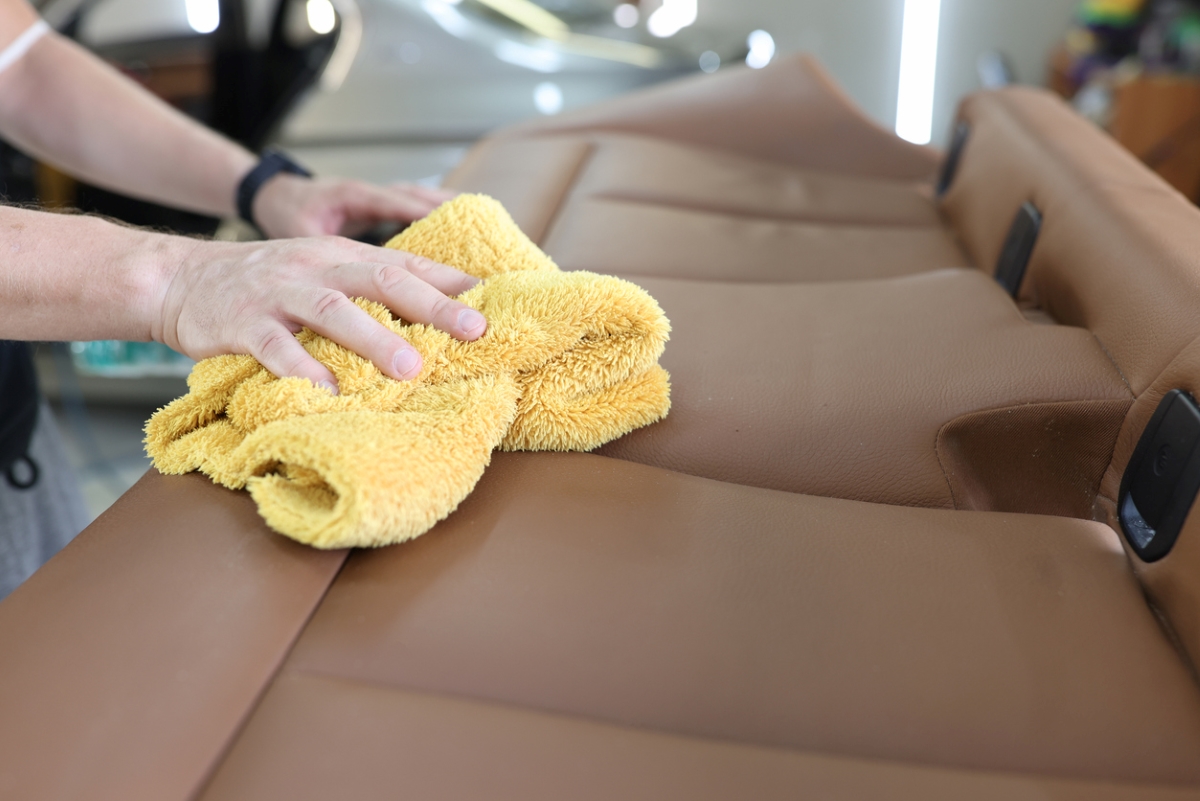
WD-40 makes stiff leather items feel more soft and supple. Dog collars, baseball gloves, work boots, shoes, and sandals all benefit from a spray. As a bonus, you’ll remove stubborn stains at the same time, which means the lubricant is particularly useful in treating vintage items. It’s also improves the look of leather-like materials, such as boat upholstery.
8. Maintain Fishing Tools
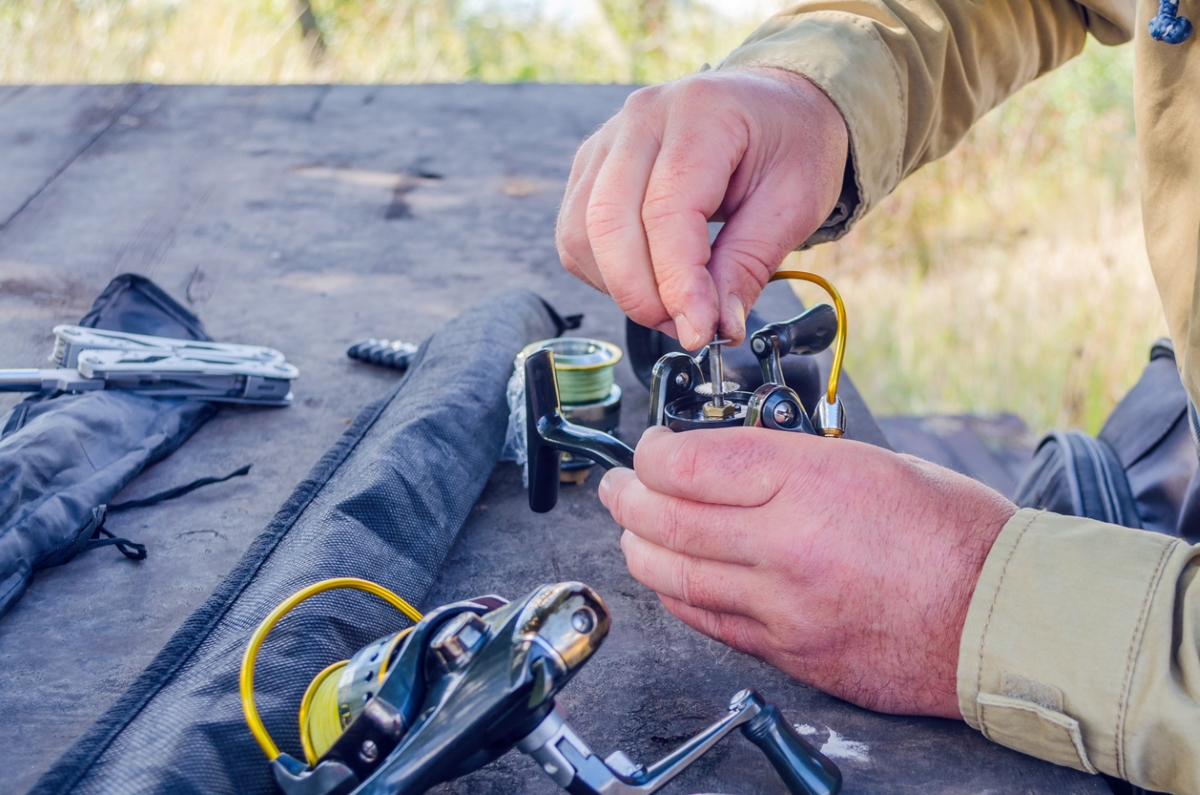
You may have heard the rumor that fish are attracted to the scent of WD-40. Though the rumor is unfounded, WD-40 is still worth stashing in your tackle box because it lubricates spools’ inner bearings to keep fishing reels spinning and releasing with ease. It can soften and refresh plastic lures and remove the scent of your hands from them, making it more likely that fish will bite. Before applying WD-40 to fishing gear, however, you may want to check local fish and wildlife laws—or at least bear in mind that traces of a formula that you use to freshen a lure could also end up in the water.
RELATED: 8 Handy Substitutes for WD-40 Around the House
9. Wipe Away Bird Droppings
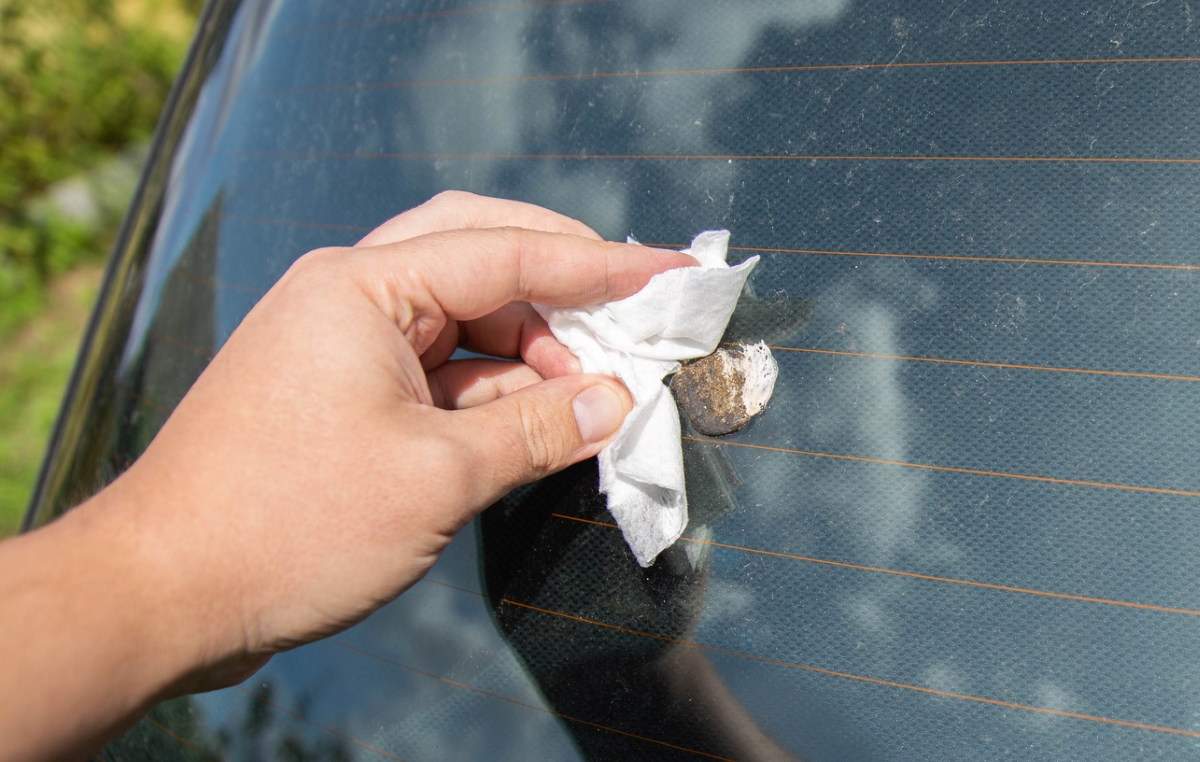
You’ve probably heard the old superstition about how it’s good luck when a bird poops on you—not so, however, when bird droppings hit your car. The next time birds bestow “good luck” on your vehicle, leave WD-40 on the spot for 30 seconds or so, which will help loosen even dried-on messes. Attend to the droppings as soon as you notice them, though: Bird feces are also high in uric acid, which can damage your car’s paint job if they’re not cleaned up promptly.
10. Eliminate Fingerprints
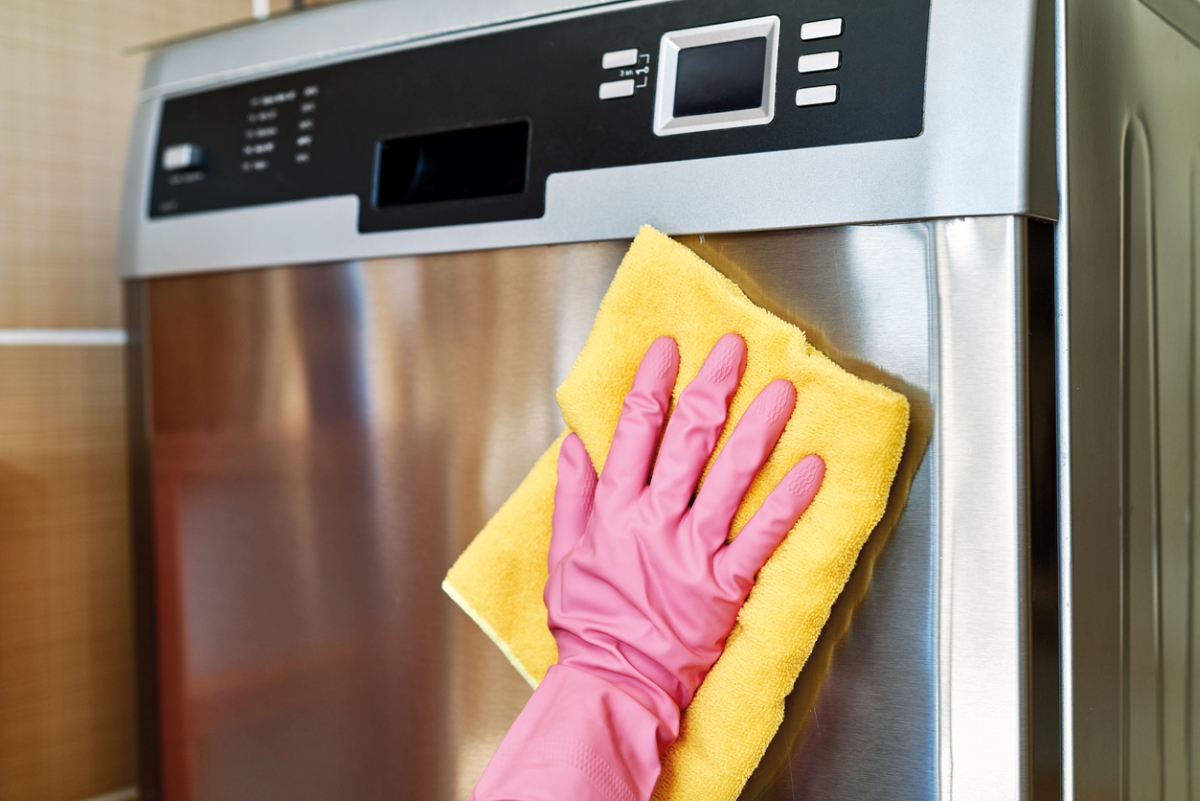
Stainless steel appliances look sharp, but they’re magnets for fingerprints. Wiping with a regular cloth can leave streaks behind—and leave the fridge, toaster, or dishwasher look less than pristine. Instead of reaching for a sponge and soapy cleanser, “Spray WD-40 on a cloth and wipe appliances to remove fingerprints and smudges. Buff with a clean, dry cloth for a polished finish,” advises Cherniak.
RELATED: How To: Clean Stainless Steel
11. Remove Paint
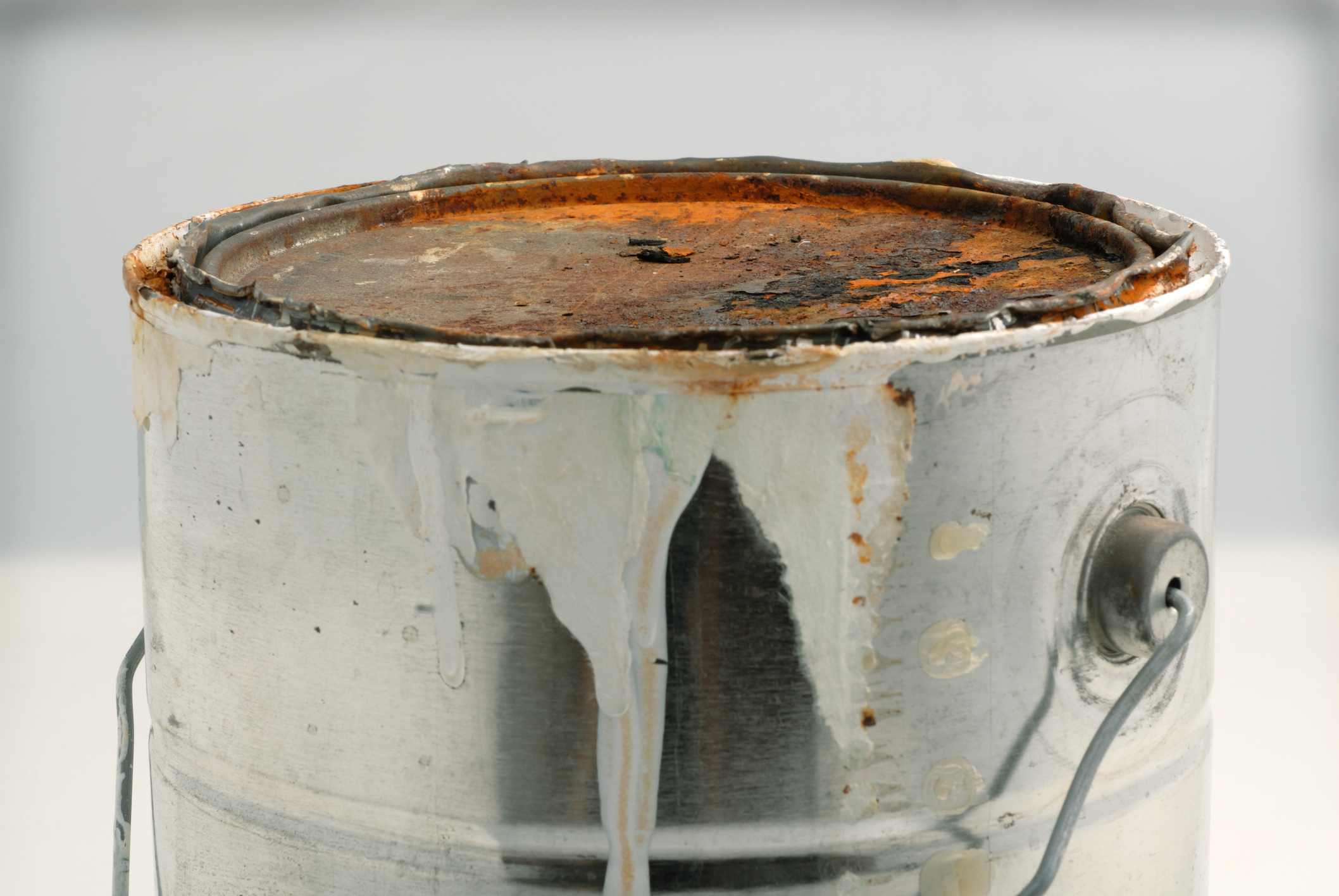
DIYers seem to either enjoy love painting or loathe it entirely. Even when using drop cloths, painter’s tape, and other protective measures while painting, drops of paint will end up on the floor. If dribs and drabs end up on your tile floor, blast it off with a few sprays of WD-40 and wipe it clean.
You can also use WD-40 to loosen paint can lids, and refresh dried-out paintbrush bristles. Before starting a paint job, spray door knobs and handles with WD-40: It’ll keep errant drops of paint that hit the metal from sticking.
12. Unknot a Necklace
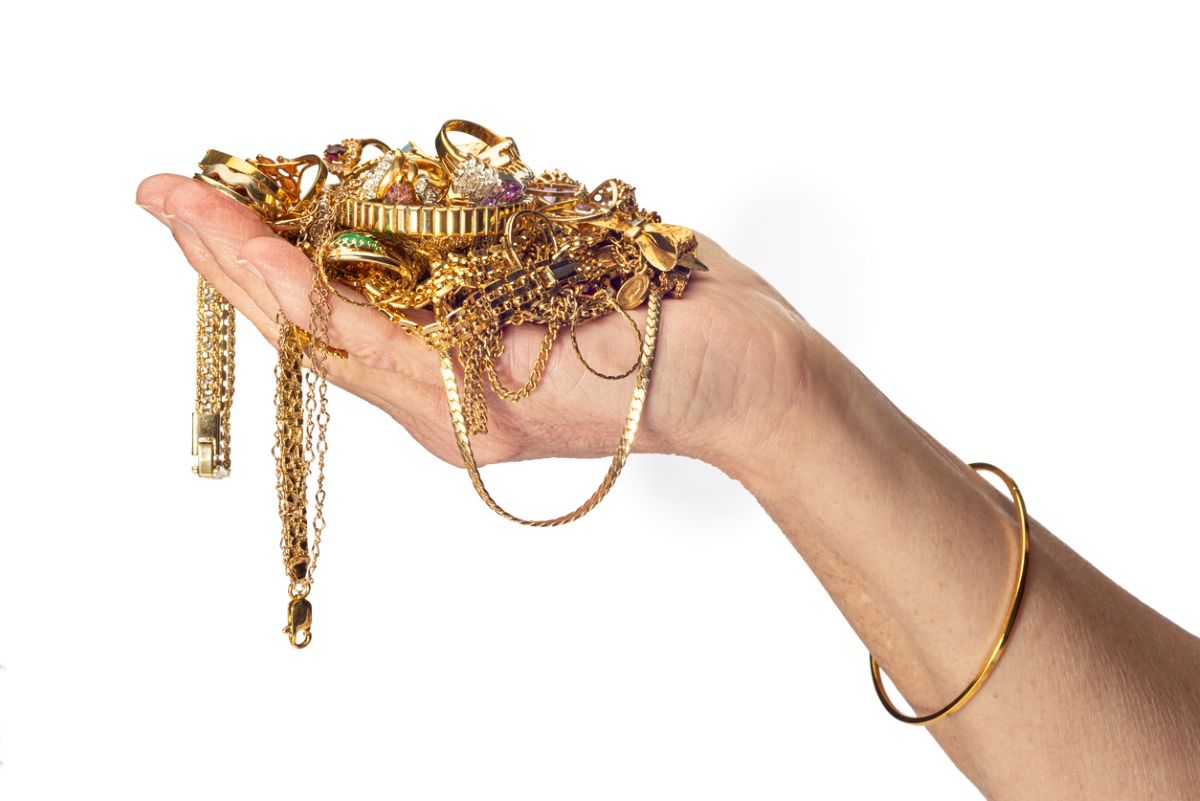
If you have a jewelry box with treasures and baubles, chances are, there’s at least a couple of tangled necklaces in the mix. A little lubrication goes a long way in helping restore order to your chains and pendants. Spray some WD-40 on the knots, and the strands will come apart smoother, faster, and with less aggravation. After untangling, make sure to clean the jewelry, particularly if you have sensitive skin.
RELATED: 50 Products for Quick Fixes Around the House
13. Tackle Duct Tape Residue
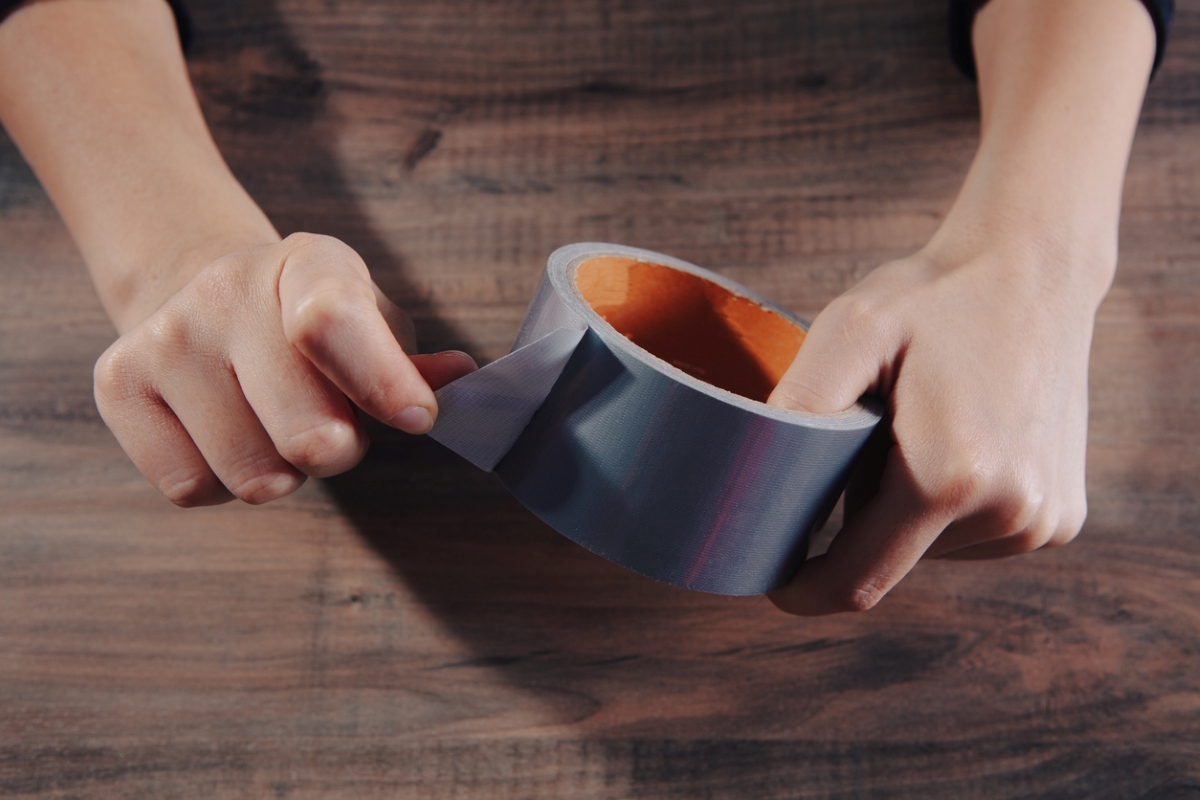
When you need an adhesive that’s strong, long-lasting, and reliable, duct tape is your best friend, but its fixes are typically temporary. If you’ve ever removed duct tape that stayed on too long or baked in heat or sun, you’re familiar with the sticky and difficult residue it can leave behind. Spray on the WD-40, give it a couple of minutes to soak in, then wipe away the tackiness. This trick works for stickers and other tape or glue residue, too.
RELATED: We Tested Multiple Duct Tapes, and We Keep Reaching for This Simple Product
14. Restore Wood
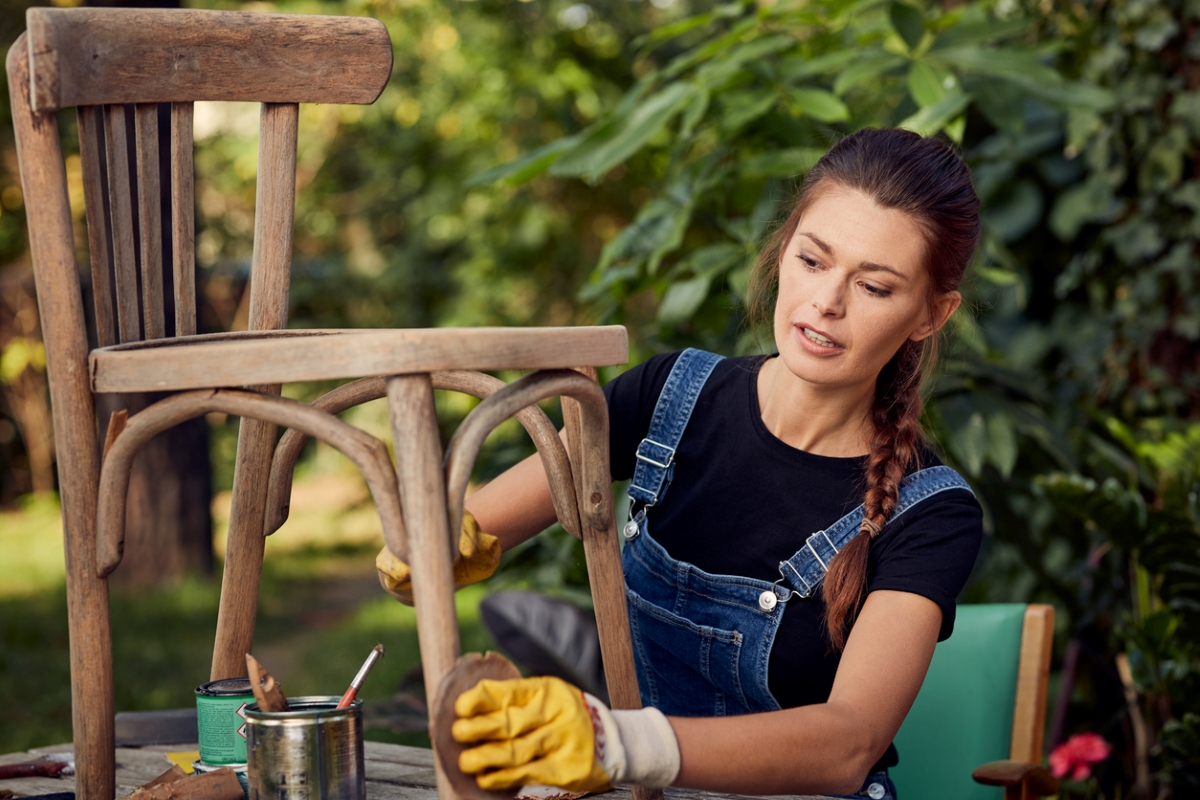
If you have scratched or weathered wood furniture that you want to restore, wipe on some WD-40. Make sure to thoroughly clean the wood first, then spray a small amount of the original WD-40 formula on a dry, clean cloth and rub it onto the blighted area. Don’t apply too much—you don’t want to oversaturate the wood.
15. Protect Outdoor Furniture
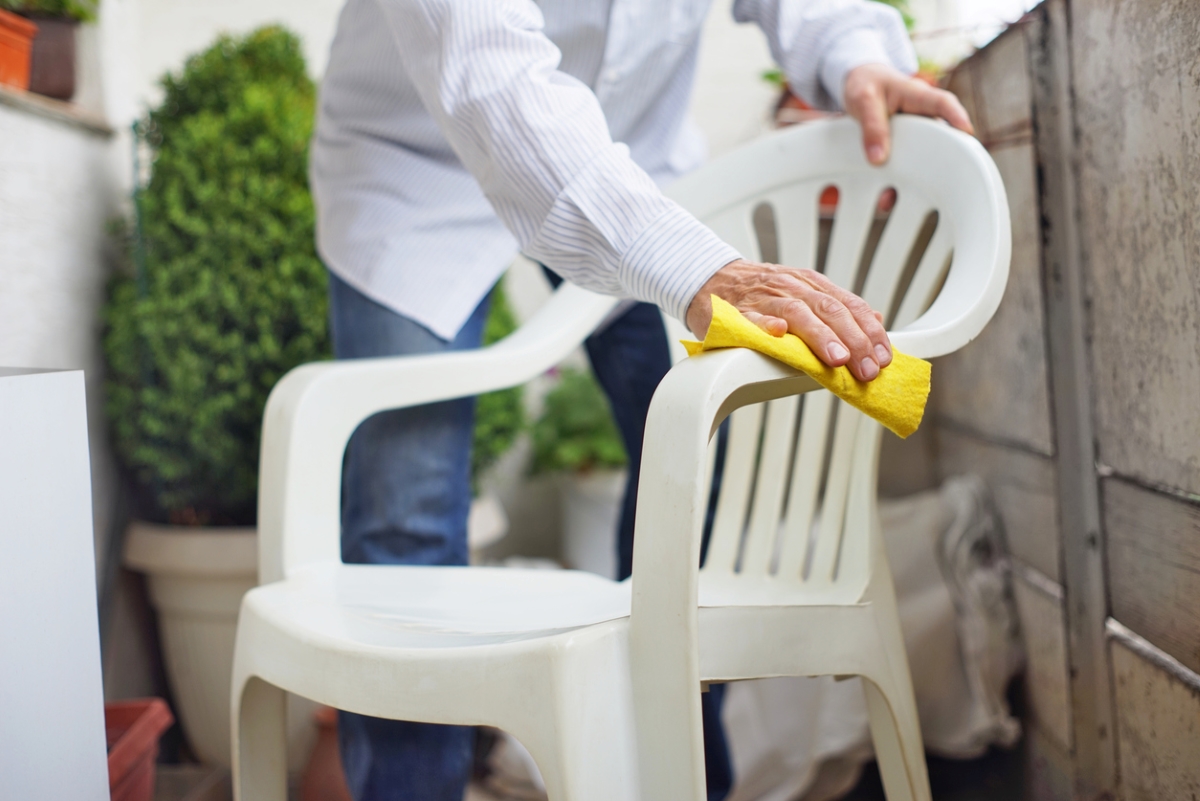
Spraying on a thin layer of WD-40 can ensure that patio furniture can withstand the elements, and all of the grime and debris that results from outdoor use. Thoroughly clean everything to remove any built-up dirt and generously spray the WD-40 on any metal, wood, or plastic finish to help fight off moisture and sun damage.
RELATED: How to Clean Outdoor Cushions
16. Remove Gum From Shoes
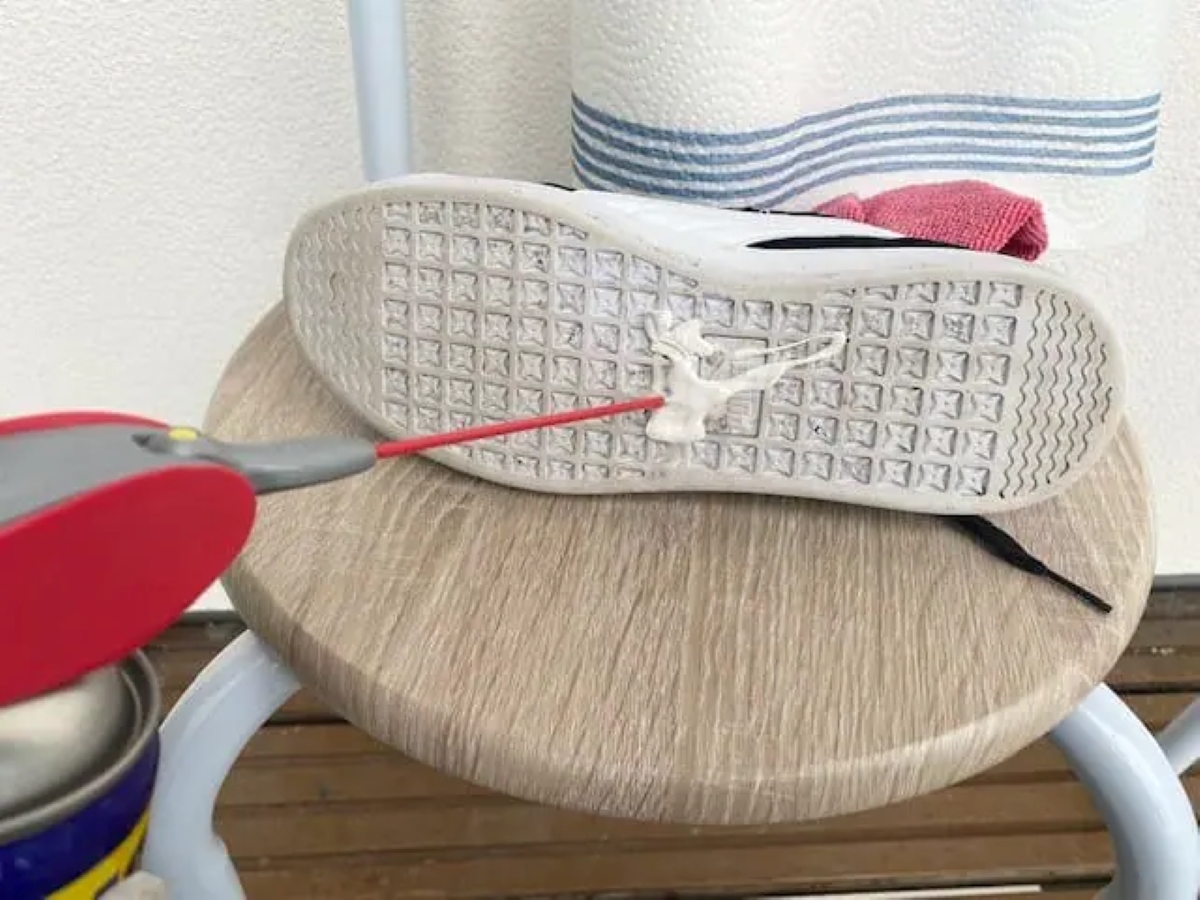
Stepped into a sticky situation? A spritz of WD-40 and some nail polish remover can help pry away gum from the sole of your shoe. Pour a capful of nail polish remover on the gum and let it sit for 5 minutes. Then take the original WD-40 formula and use the smart straw to spray it on the gum. Wipe away the gum with a clean cloth, repeating as necessary.
17. Loosen a Stuck Key
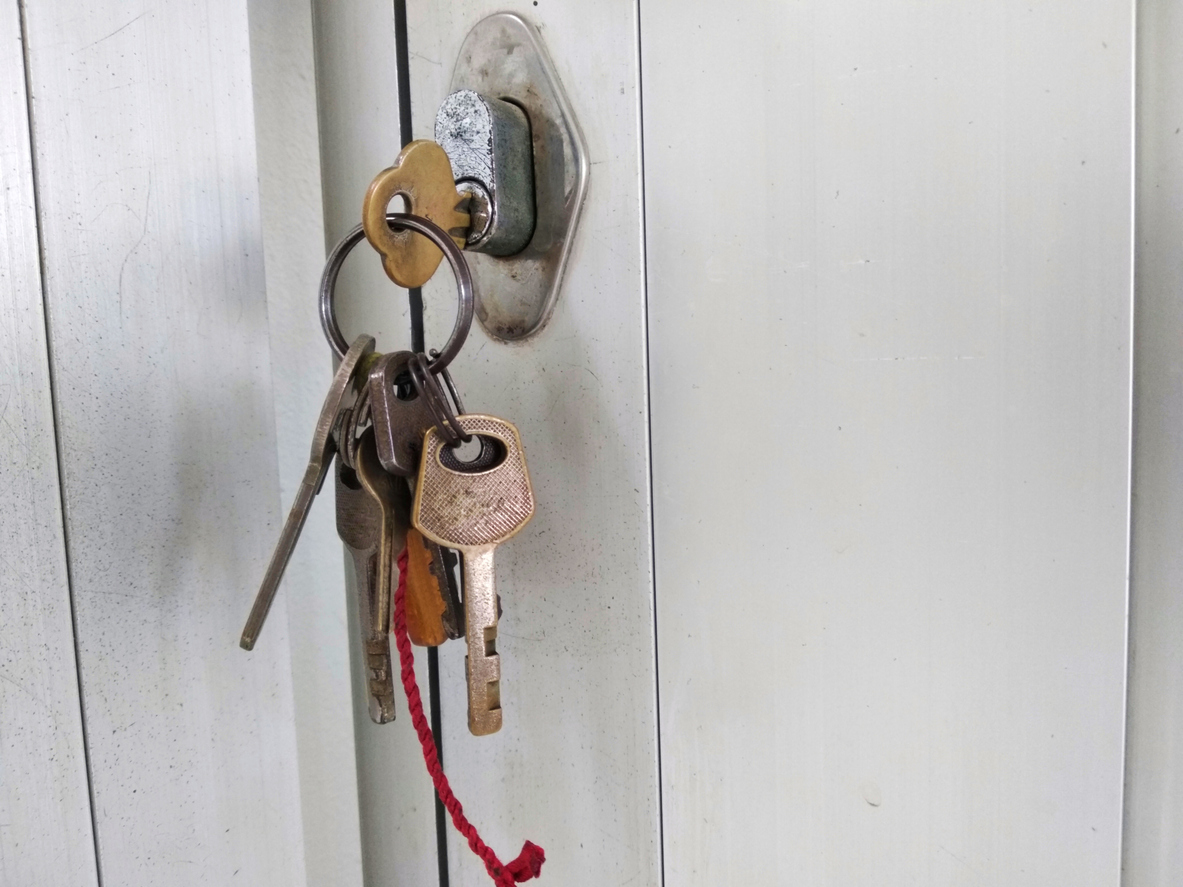
We’ve all been there: You attempt to unlock a door and the key sticks—or worse, it snaps off, leaving the other half inside the lock. A spritz of WD-40 through its straw can help loosen it from the lock. Jiggle the key gently until the key yields.
RELATED: 5 Fixes for a Stuck Key
18. Lubricate Luggage Zippers
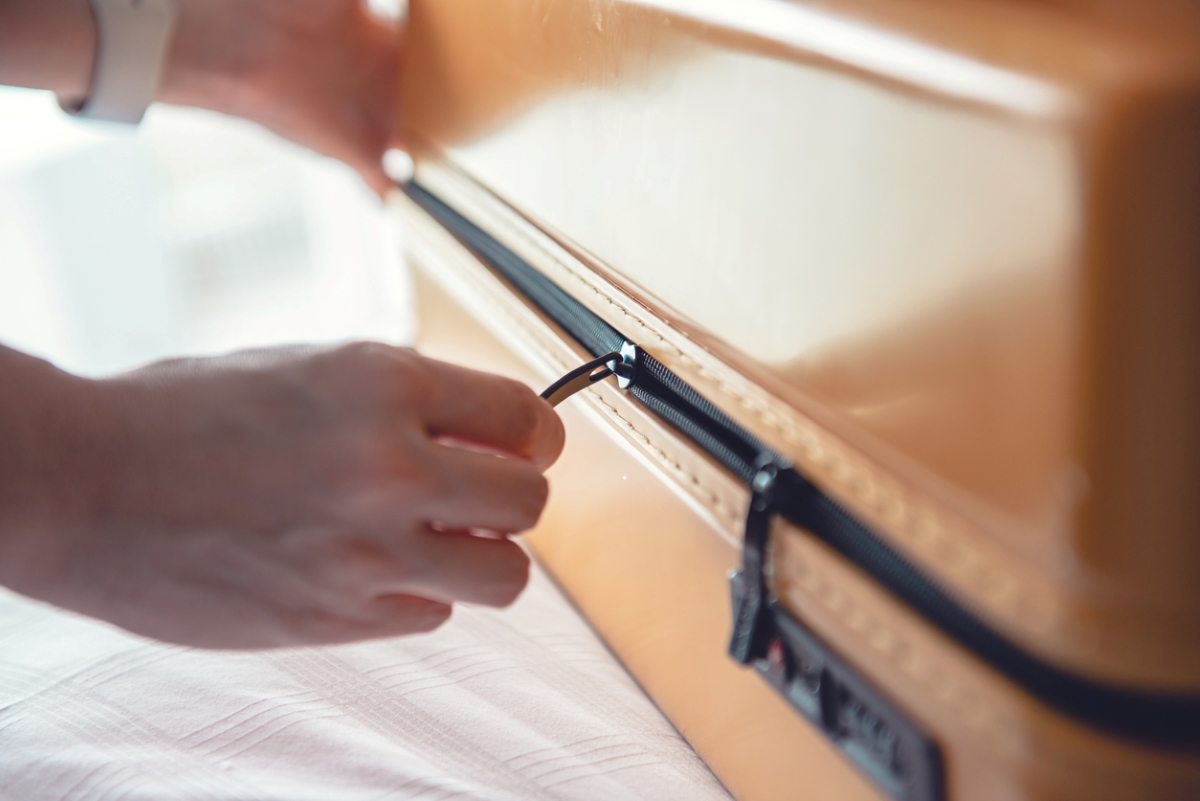
Zip through airport security checkpoints with a spritz of WD-40. There’s nothing worse than having a stuck zipper on your suitcase. To make packing and unpacking a breeze, use the smart straw to spray WD-40 onto the zipper, avoiding the fabric, to ensure easy access.
